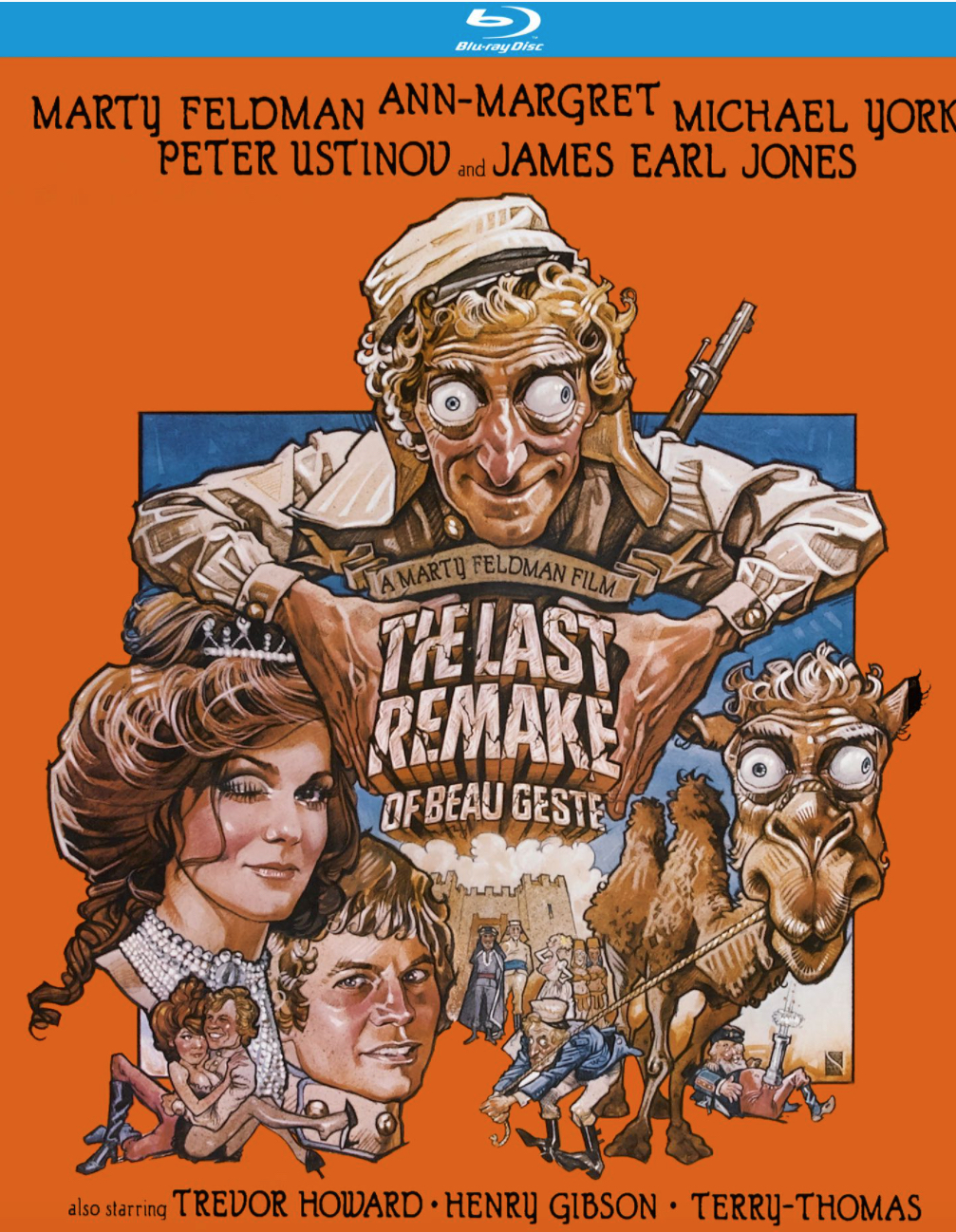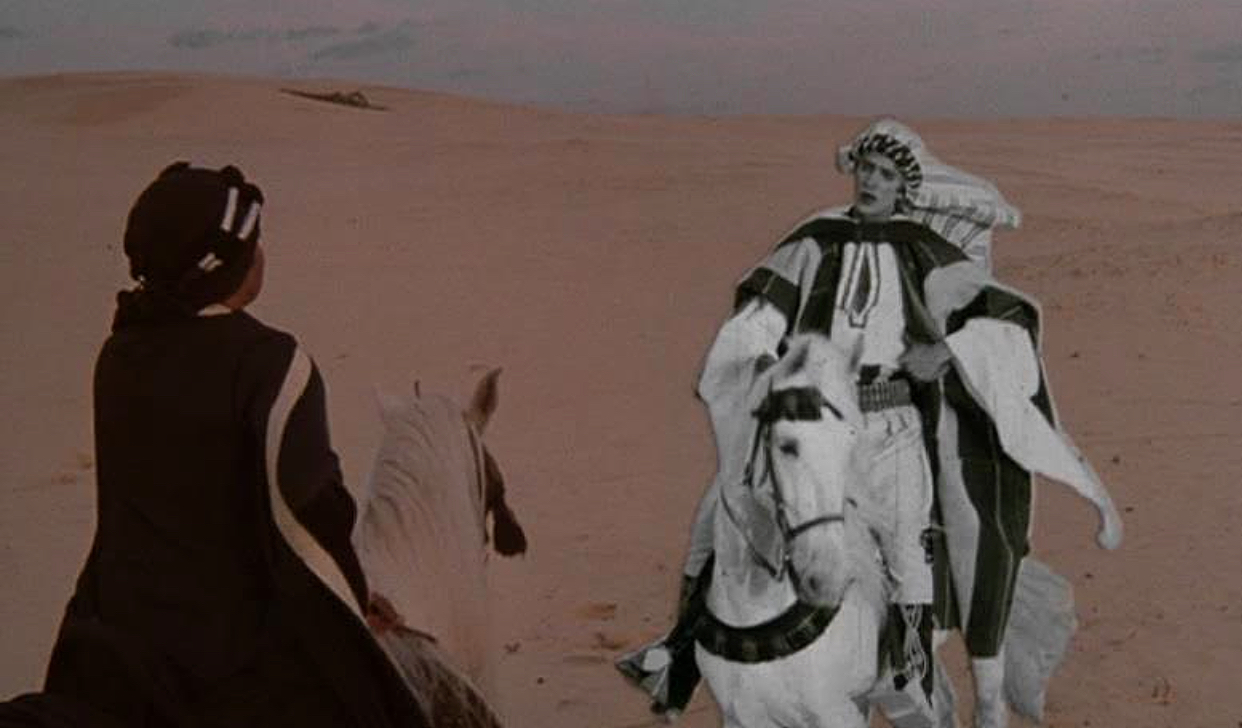I never saw Marty Feldman‘s The Last Remake of Beau Geste, a surreal genre farce, when it opened in mid July ’77. I was scared away by critics who said it was inventive but overly broad and not funny enough**. They also complained that swollen-eyeballs Feldman was better as the offbeat comic ensemble guy than a star — that he didn’t have the charisma or gravitas or whatever.
And so, to be honest, I was a little bit reluctant to sit down with a recently arrived Kino Lorber Bluray version. But I’d heard that the commentary track by director-writer Alan Spencer was exceptional, and so I finally watched it last night. The Spencer version, I mean, and I was knocked dead flat by how enjoyable it all felt.


Really. Seriously. I sat right up on the couch and stayed that way all through, pretty much marvelling at how wise and intimate, amusing and flavorful Spencer’s recollections were, start to finish. This may be the wrong thing to say, but Spencer’s guide-tour version of Feldman’s film is so good that I almost don’t want to watch the pure-Feldman version. Yup — definitely the wrong thing to say.
Just for emphasis: Spencer’s Beau Geste is the best Bluray audio commentary I’ve listened to (and savored) since the heyday of audio commentaries between the mid ’90s and early aughts. It’s as nourishing as John Frankenheimer’s The Train commentary track, which I first heard in the mid ’90s on laser disc. It’s also in the same realm as the Steven Sodebergh-Lem Dobbs commentary for The Limey, and the Soderbergh-Mike Nichols commentary for Catch 22.
Everything Spencer passes along is droll and assured and totally first-rate — hugely engrossing, no flat spots, dryly amusing, chocked full of knowledgeable inside info about Feldman’s feverish creativity and the big fight he had with Universal when they went behind his back and cut and released their own version of the film, which was more on-the-nose conventional and less crazy-surreal-Pythonesque, as Feldman intended.
I wish someone could resurrect the original “Martyr” Feldman version, which used a flashback structure.
The Spencer journey isn’t just an informative listen but an emotional one, as Feldman and Spencer were friends and allies. Feldman befriended a teenage Spencer when the latter snuck onto the 20th Century Fox set of Young Frankenstein in ’73, and from that point on they were bruhs until Feldman’s heart-attack death in late ’82, at age 48.
Tonight I’ll be listening to Spencer’s narration track of Feldman’s In God We Tru$t (’80), which I also ducked. The commentary is more serious as heavier stuff went down during the making of this modest, unsuccessful comedy.
** N.Y. Times critic Vincent Canby liked it, although Feldman, believe it or not, got in touch with Canby and told him his review was wrong about this and that.
*** [Wiki excerpt] “After completing his cut of the film, Universal sent Feldman on a two-week ‘working vacation.’ While he was gone, Universal recut the film and had John Morris compose a new score. Feldman’s friend Alan Spencer said the two cuts were markedly different — Feldman’s was more surreal and Pythonesque, whereas Universal’s told a more conventional story. The Universal version ended with a scene where Feldman’s began, because his was told in flashback. Spencer says both versions were tested before audiences, and Feldman’s version tested better, but Universal ultimately released their cut of the film.
